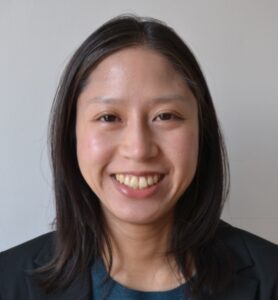Educational Studies Class Conducts Research with Anti-Racist Teaching and Learning Collective
In Fall 2022, students in Professor Elise Castillo’s Race, Class, and Education Policy course worked with the Anti-Racist Teaching and Learning Collective to contribute to the Collective’s ongoing research on anti-racist teaching in schools across Connecticut. The Collective is a community of educators and youth workers advancing anti-racist pedagogy in the state’s K-12 schools. Castillo’s students conducted ten interviews with CT teachers on how they define anti-racism, how they implement anti-racist practices in their classrooms, and what support they need to do this work.
“[Castillo’s class] expanded the group of teachers engaged in this process significantly, including teachers in subjects outside of social studies and English,” says Daniel Martinez HoSang, a member of the Collective’s steering committee and Associate Professor of Ethnicity, Race & Migration at Yale University.

Castillo first taught this course in fall 2021. “At the time, the Connecticut General Assembly had passed legislation in 2019 requiring that all public high schools in Connecticut offer a Black and Latinx Studies elective, and things were really starting to move forward,” explains Castillo.
Fall 2022 was the first time the elective was required in CT high schools, making this past semester an interesting time to conduct interviews about anti-racist teaching.
“For the past few years, the Collective has been conducting research by interviewing teachers to understand not only their experiences teaching Black, and Latinx Studies, but also how they define anti-racist teaching more broadly and incorporate anti-racist teaching into their practice,” says Castillo.
Prior to conducting interviews, the students spent a few weeks studying the research on ethnic studies. Many scholars have written about the academic and social benefits of ethnic studies across all grade levels. The research highlights the distinct benefits for both students of color and white students. “From this literature, the students got a good understanding of why we have movements in CT and elsewhere to expand ethnic studies course offerings due to the documented benefits,” explains Castillo.
The class also studied qualitative research and interview methods, read and listened to sample interviews, practiced interview techniques, and reflected on what it means to bring their own identities and past experiences to the interview experience. After studying the research on ethnic studies and learning about interviewing as a research technique, they were prepared to interview teachers in teams of 2-3.
I was expecting our research findings to show teachers were struggling with the implementation of anti-racist education. However, we actually were able to learn from an array of teachers, all teaching various subjects, just how valuable anti-racist education has been to incorporate in their classrooms.
The students’ main findings from the interviews were that 1) Teachers found ways to incorporate anti-racist teaching across content areas, not only in social studies classes, 2) Teachers saw benefits in relationship building between students and among students and teachers, and 3) With few exceptions, teachers felt supported in implementing ethnic studies and anti-racist teaching by their schools and by parents. Students were encouraged by the third finding given how many communities across the country, including in Connecticut, have critiqued teachers who address race and racism in their classrooms.
“I was expecting our research findings to show teachers were struggling with the implementation of anti-racist education. However, we actually were able to learn from an array of teachers, all teaching various subjects, just how valuable anti-racist education has been to incorporate in their classrooms,” reflects Xavier Mercado ’24, an Educational Studies and English double major who took Professor Castillo’s course.
Students in the class ranged from sophomores to seniors, some with extensive Community Learning experience and others working on their first community-based research project. Despite the range of experience, Castillo says, “I really enjoyed seeing students working together to support one another.”
For the students in the class interested in teaching, the interviewing experience was especially meaningful. Although many teachers explained that implementing anti-racist teaching can be difficult given the time and intentionality needed to develop alternative curricula and teaching strategies, many shared examples of simple ways to incorporate lessons on race, racism, and social justice. For instance, students learned how a math teacher included examples of racial disparities in mass incarceration when teaching about ratios and proportions. “I was thrilled to learn how easy incorporating this curriculum could be because it helped me learn as a potential future teacher that you can add little changes and make a large impact,” says Lauren Bessette ’24.
Jane Dunbar ’23 was considering becoming a teacher prior to taking this class. Conducting these interviews solidified her interest in teaching. “Prior to the interview, I had been working as a substitute teacher, but I was very unsure about if I wanted to go into teaching after graduation. The interview that we conducted during this project solidified for me that I definitely want to work with children and in teaching at some point after college.”
The course overall was rewarding for students while contributing to the ongoing research and advocacy of the Anti-Racist Teaching and Learning Collective. “Professor Castillo’s class this semester was one of my favorite courses I’ve taken at Trinity. I loved the way that Professor Castillo ran the class and included a project that applied to the community and provided us with real-life examples of what we were discussing in class,” summarizes Dunbar.
“People often think of college and K-12 education as distinct and separate systems, but they are deeply interconnected. Having college students engage in this process is central to their development as scholars, and helps teachers advance their understanding of anti-racist work,” HoSang adds.
View the students’ slides from their presentation to the Anti-Racist Teaching and Learning Collective:
